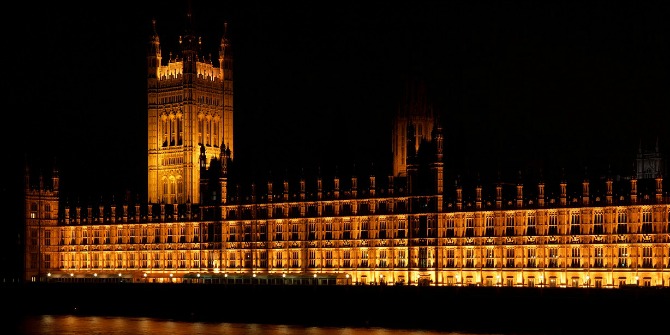 Kicking off our London Mayoral Election 2012 coverage, Tony Travers looks at the state of the race for City Hall. As the Conservatives, Labour and Liberal Democrats offer up ‘repeat’ candidates, he wonders what this election might tell us about the state of the parties and their prospects for the next general election.
Kicking off our London Mayoral Election 2012 coverage, Tony Travers looks at the state of the race for City Hall. As the Conservatives, Labour and Liberal Democrats offer up ‘repeat’ candidates, he wonders what this election might tell us about the state of the parties and their prospects for the next general election.
London mayoral contests are among the most interesting and combative of all British elections. With the fourth mayoral race now under way, it is possible to discern longer-term trends, both for London and other British cities, emerging from this experiment with American-style city government. On 3rd May, there will not only be an election for the London mayor and Assembly, but also referenda in a number of other major English cities about whether or not to introduce directly-elected mayors there, too. These votes and their outcome will be vitally important for the future of urban politics in Britain.
The London election is a re-run of 2008. Incumbent mainstream Conservative Boris Johnson faces the super-durable Labour challenger Ken Livingstone. The Liberal Democrats are once again represented by ex-Met Police officer Brian Paddick. It is rare for elections of this kind to have three ‘repeat’ candidates. The fact this is so implies that the three major political parties struggle to find new candidates for such a unique and high-profile job.
The mandate is vast. London’s population will exceed eight million during the term of the next mayor. The electorate exceeds five million. Although Labour has edged ahead of the Conservatives in terms of longer-term vote shares in the capital, London remains a politically plural place. Oddly, the introduction of mayoral elections using the ‘supplementary vote’ system with, in parallel, London Assembly elections using the ‘additional member’ system appears to have led to a squeeze on smaller parties.
Thus, in London Borough elections in 2006 and 2010 (with ‘first-past-the-post voting) the Conservatives received 35 per cent (2006) and 32 per cent (2010) of the vote, Labour received 28 per cent and 33 per cent and the Liberal Democrats 20 per cent and 22 per cent. Yet in the 2008 mayoral election, the Lib Dem candidate received 10 per cent of the first preference vote and in the Assembly ‘list’ election, the Lib Dems received 11 per cent. Thus, in the London-wide proportional representation election, the Liberal Democrats do significantly less well – in terms of vote share – than in borough first-past-the-post elections. ‘Others’ (that is, not the three major parties) received 10 per cent of the first preference mayoral vote and 26 per cent of the Assembly ‘list’ vote. But because the Assembly list vote is highly fragmented, the Conservatives and Labour together won 19 of the 25 seats. The two biggest parties are likely to fare even better in 2012, together possibly winning 20 or 21 of the total.
The Greater London Authority (Mayor and Assembly) elections were supposed to produce more plural (some would say representative) results. But, as in Scotland, where the Scottish National Party has won a Parliamentary majority in a system with proportional representation, experiments with new voting systems can produce unexpected outcomes. GLA elections are leading to more traditional two-party results than might have been expected. The Boris vs Ken contest has created a binary choice which has evidently spilled over into the Assembly, leaving little room for smaller parties.
Beyond London, there will be referenda about the possibility of introducing mayors. Big cities such as Bristol, Birmingham, Leeds, Sheffield and Manchester may join Liverpool and Salford which have already decided to opt for mayoral contests in May. Leicester already has a directly-elected mayor. Polling suggests a number of the core cities will vote ‘yes’, while will lead to another round of elections on 15th November this year. It is possible that by the end of 2012, a number of leading cities in England will be run by high-profile mayors.
The London contest appears to be tight. Opinion polls suggest a close race between Johnson and Livingstone. The contest will inevitably be seen as a ‘war by proxy’ between David Cameron and Ed Miliband, though the latter surely has more to lose if his man does not win. The results of London-wide elections since the first Greater London Council contest in 1964 have proved a reliable predictor of the outcome of the following general election. Only in 1981 was the London election (where Labour won) not followed by a similar outcome at the 1983 national contest (where Mrs Thatcher triumphed). The outcome of the 2012 mayoral race will tell us much about the current state and likely future path of British politics.
Please read our comments policy before posting.
About the author
Tony Travers is Director of British Government @ LSE and LSE London.







